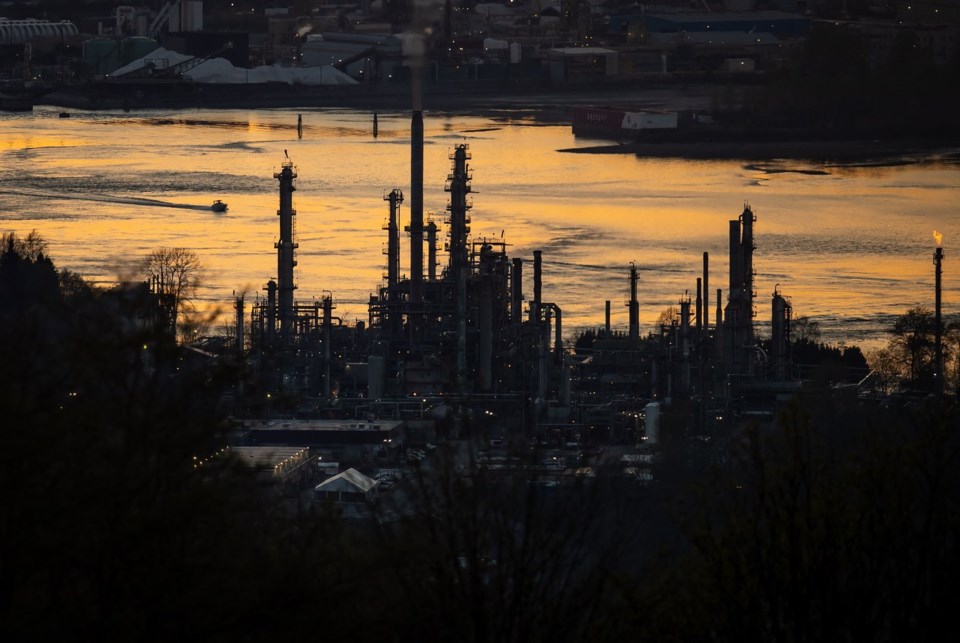CALGARY ‚ÄĒ Ottawa is weighing the proposed takeover of Calgary-based Parkland Corp. by American fuel distributor Sunoco LP at a time of fraught Canada-U.S. relations and amped-up resource nationalism.
The US$9.1-billion friendly deal announced last week is subject to a review under the Investment Canada Act, which considers whether foreign investments would be a net benefit to the country or cause potential harm to national security.
"The timing of this acquisition, even though Parkland was soliciting offers, may be unlucky for them in that there will be, rightly or wrongly, more attention focused on it," said Jennifer Quaid, who teaches corporate law at the University of Ottawa.
"It's an American acquisition in a sector that we are paying a lot of attention to right now."
The flurry of tariff and annexation threats coming from U.S. President Donald Trump have intensified calls for Canada to develop its own resources and build infrastructure allowing access to markets outside of the United States.
Parkland sells fuel under the Ultramar, Chevron and Pioneer gas station brands in Canada and also owns a refinery in Burnaby, B.C.
Ottawa recently announced updated national security guidelines under the Investment Canada Act to account for potential harms to Canada's economic security. The government said it will consider the size of the Canadian business, its place in the innovation ecosystem and the impact on Canadian supply chains.
"As a result of a rapidly shifting trade environment, some Canadian businesses could see their valuations decline, making them susceptible to opportunistic or predatory investment behaviour by non-Canadians," François-Philippe Champagne, then the minister of industry, wrote on X on March 5.
Champagne was sworn in as finance minister under the newly elected Liberal government on Tuesday, while Mélanie Joly is now in charge of the ministry overseeing the Investment Canada Act review.
Joly told reporters in Ottawa on Tuesday that she expects to be briefed on the file in the coming days.
It would be highly unusual for the federal government to reject a takeover, said Camden Hutchison, who teaches corporate law at the University of British Columbia.
"That said, given the political sensitivity of a large U.S. acquisition of a Canadian energy company at this time, I expect there'll probably be more political attention given to the review, and I think that the review itself will probably be more rigorous," he said.
The same day Ottawa announced the new Investment Canada Act guidelines, Parkland, under pressure from investors displeased with its recent performance, announced it would review options to boost shareholder returns, including putting itself up for sale.
Parkland shareholders are to vote on the Sunoco takeover, which comes with a 25 per cent premium, on June 24.
Parkland said Sunoco has committed to safeguarding Canadian jobs, retaining its Calgary head office and investing in Canada.
"Oil and gas arguably has always been important, but we haven't been as preoccupied with oil and gas integration with the U.S. as we are maybe now. And so is some of that going to trickle into this analysis?" said Quaid.
Hutchison said it's likely the federal government will add conditions to the deal, such as requiring Sunoco to commit to keeping a certain Canadian head count for three to five years.
Late last week, the union representing 150 workers at Parkland's refinery in Burnaby called on the federal and B.C. governments to secure binding commitments from Sunoco.
‚ÄúThis is not the time to hand over control of critical energy infrastructure to a foreign multinational, especially in the middle of a trade war,‚ÄĚ said Unifor national president Lana Payne. "Unifor is sounding the alarm because energy security is national security, and we cannot afford to gamble with it."
The refinery supplies nearly one-third of the region's domestically supplied gasoline and jet fuel.
"The refinery is essential for the region's fuel supply and provides good union jobs," said Unifor western regional director Gavin McGarrigle. "British Columbians deserve solid, enforceable commitments that this refinery will be sustained through continued investment."
This report by The Canadian Press was first published May 13, 2025.
Companies in this story: (TSX: PKI)
Lauren Krugel, The Canadian Press




